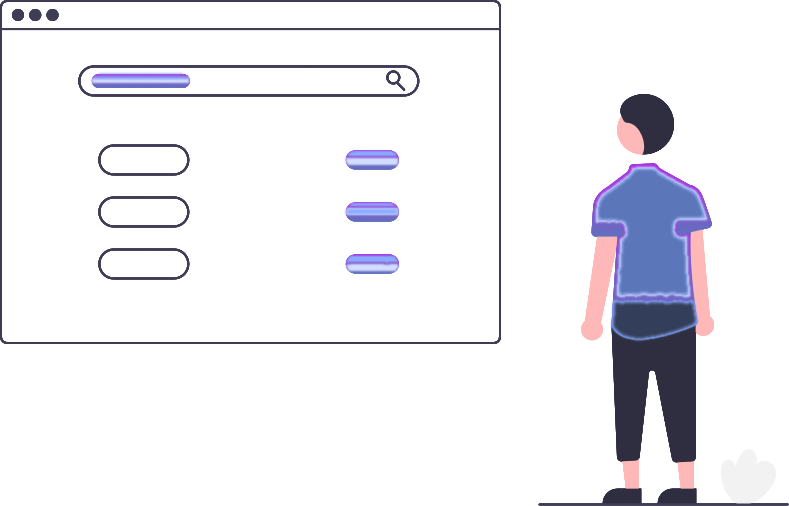Start your domain name search
Business Protection
Keep your domain locked & in your name
- Blocks both accidental and malicious domain transfers.
- Keeps your personal details hidden from snoops and crooks.
- Publishes an online business cards.

Each Domain Includes

Easy Management
Once you use our domain name lookup and find a suitable web address, you can manage your site through a simple interface.

Auto-Renewal
Protect your domain from expiring and accidentally being lost by enabling auto-renewal.

Domain Lock
Once you find your perfect domain, lock it down to prevent unauthorized transfers.
Frequently Asked Questions
How Should I Choose My Domain Name?
When you choose a domain name for your website, consider several factors such as brandability, ease of rememberability, and relevance. Pick something that is simple and speaks to the purpose of your website. Make sure it's available before you commit, and aim to keep the name as short and concise as possible.
What is a domain name?
A domain name is a unique name that identifies a website or other internet resource. It serves as an address for users to find and access the website and is typically composed of a combination of letters and numbers followed by a top-level domain (TLD) such as .com, .org, or .edu. For example, "google.com" is a domain name that points to the website of the Google search engine.
Is My Domain Name Available?
Search to check if a domain name is available, you can use a domain name registrar, which is a company that manages the reservation of domain names. These registrars have a search feature on their website where you can enter a potential domain name and see if it is available for purchase.
Is Domain Name Privacy + Protection Worth It?
Domain name privacy and protection services, also known as WHOIS privacy, can be beneficial for some individuals and organizations, as they can help protect your personal information from being publicly available.
By default, when you register a domain name, your personal contact information, such as your name, address, phone number, and email address, is publicly available in the WHOIS database, which is a public directory of domain name registration information. This information can be accessed by anyone and can be used for a variety of purposes, including spamming, phishing, and identity theft.
